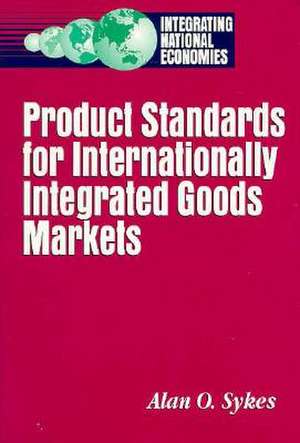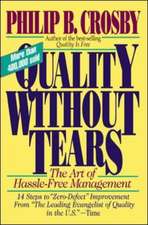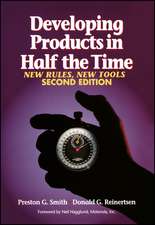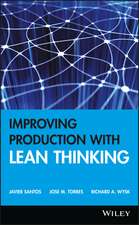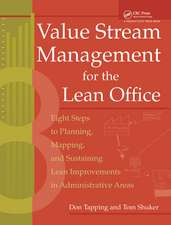Product Standards for Internationally Integrated Goods Markets
Autor Alan O. Sykesen Limba Engleză Paperback – feb 1995
Product standards, regulations, and conformity assessment procedures are important and necessary, but they also, at times, threaten the free flow of goods in international markets and the competitive positions of many exporters, including those in the United States. The barriers to trade that may result form product standards and regulations may be inadvertent or deliberate. The problem cuts across a wide array of industries, from motor vehicles to computers to televisions to food and beverages.
This book, part of the Brookings Integrating National Economies series, is the first to blend careful economic and legal analysis of technical barriers. Alan O. Sykes illustrates how standards and regulations create trade barriers, explores the extent of the problem, and considers the possible policy responses.
The effects of technical barriers are hard to measure. They are often hidden in the costs of modifying a product to meet a standard or regulation, in the costs of testing and certification procedures, and in the ways that noncompliance with a standard may affect consumer purchasing decisions. Sykes identifies why heterogeneity in standards and regulations may arise across jurisdictions and assesses the desirability of eliminating it in various settings.
Sykes also presents an extensive and insightful overview of current international efforts to police technical barriers in the WTO/GATT system, in the European Union, in the U.S. federal system, and NAFTA. He shows how least-restrictive means principles and their corollaries can do much to reduce technical barriers, while stopping short of impinging on the legitimate exercise of national sovereignty.
Efforts to harmonize internatioal policies and set common standards and regulations have been under way for decades. Sykes evaluates the harmonization activities of institutions such as the International Organization for Standardization, the Codex Alimentarius, and the European Commission. The final chapter assesses the adequacy of existing efforts to address technical barriers, suggesting where further progress might be made, and discusses the special problems of developing countries.
A volume of Brookings' Integrating National Economies Series
This book, part of the Brookings Integrating National Economies series, is the first to blend careful economic and legal analysis of technical barriers. Alan O. Sykes illustrates how standards and regulations create trade barriers, explores the extent of the problem, and considers the possible policy responses.
The effects of technical barriers are hard to measure. They are often hidden in the costs of modifying a product to meet a standard or regulation, in the costs of testing and certification procedures, and in the ways that noncompliance with a standard may affect consumer purchasing decisions. Sykes identifies why heterogeneity in standards and regulations may arise across jurisdictions and assesses the desirability of eliminating it in various settings.
Sykes also presents an extensive and insightful overview of current international efforts to police technical barriers in the WTO/GATT system, in the European Union, in the U.S. federal system, and NAFTA. He shows how least-restrictive means principles and their corollaries can do much to reduce technical barriers, while stopping short of impinging on the legitimate exercise of national sovereignty.
Efforts to harmonize internatioal policies and set common standards and regulations have been under way for decades. Sykes evaluates the harmonization activities of institutions such as the International Organization for Standardization, the Codex Alimentarius, and the European Commission. The final chapter assesses the adequacy of existing efforts to address technical barriers, suggesting where further progress might be made, and discusses the special problems of developing countries.
A volume of Brookings' Integrating National Economies Series
Preț: 184.89 lei
Nou
Puncte Express: 277
Preț estimativ în valută:
35.38€ • 36.87$ • 29.29£
35.38€ • 36.87$ • 29.29£
Carte tipărită la comandă
Livrare economică 03-17 aprilie
Preluare comenzi: 021 569.72.76
Specificații
ISBN-13: 9780815782957
ISBN-10: 0815782950
Pagini: 266
Dimensiuni: 152 x 229 x 19 mm
Greutate: 0.36 kg
Ediția:New.
Editura: Brookings Institution Press
Colecția Brookings Institution Press
Locul publicării:United States
ISBN-10: 0815782950
Pagini: 266
Dimensiuni: 152 x 229 x 19 mm
Greutate: 0.36 kg
Ediția:New.
Editura: Brookings Institution Press
Colecția Brookings Institution Press
Locul publicării:United States
Notă biografică
Alan O. Sykes is professor of law at the University of Chicago Law School.
Descriere
Product standards, regulations, and conformity assessment procedures are important and necessary, but they also, at times, threaten the free flow of goods in international markets and the competitive positions of many exporters, including those in the United States. The barriers to trade that may result form product standards and regulations may be inadvertent or deliberate. The problem cuts across a wide array of industries, from motor vehicles to computers to televisions to food and beverages.
This book, part of the Brookings Integrating National Economies series, is the first to blend careful economic and legal analysis of technical barriers. Alan O. Sykes illustrates how standards and regulations create trade barriers, explores the extent of the problem, and considers the possible policy responses.
The effects of technical barriers are hard to measure. They are often hidden in the costs of modifying a product to meet a standard or regulation, in the costs of testing and certification procedures, and in the ways that noncompliance with a standard may affect consumer purchasing decisions. Sykes identifies why heterogeneity in standards and regulations may arise across jurisdictions and assesses the desirability of eliminating it in various settings.
Sykes also presents an extensive and insightful overview of current international efforts to police technical barriers in the WTO/GATT system, in the European Union, in the U.S. federal system, and NAFTA. He shows how least-restrictive means principles and their corollaries can do much to reduce technical barriers, while stopping short of impinging on the legitimate exercise of national sovereignty.
Efforts to harmonize internatioal policies and set common standards and regulations have been under way for decades. Sykes evaluates the harmonization activities of institutions such as the International Organization for Standardization, the Codex Alimentarius, and the European Commission. Th
This book, part of the Brookings Integrating National Economies series, is the first to blend careful economic and legal analysis of technical barriers. Alan O. Sykes illustrates how standards and regulations create trade barriers, explores the extent of the problem, and considers the possible policy responses.
The effects of technical barriers are hard to measure. They are often hidden in the costs of modifying a product to meet a standard or regulation, in the costs of testing and certification procedures, and in the ways that noncompliance with a standard may affect consumer purchasing decisions. Sykes identifies why heterogeneity in standards and regulations may arise across jurisdictions and assesses the desirability of eliminating it in various settings.
Sykes also presents an extensive and insightful overview of current international efforts to police technical barriers in the WTO/GATT system, in the European Union, in the U.S. federal system, and NAFTA. He shows how least-restrictive means principles and their corollaries can do much to reduce technical barriers, while stopping short of impinging on the legitimate exercise of national sovereignty.
Efforts to harmonize internatioal policies and set common standards and regulations have been under way for decades. Sykes evaluates the harmonization activities of institutions such as the International Organization for Standardization, the Codex Alimentarius, and the European Commission. Th
